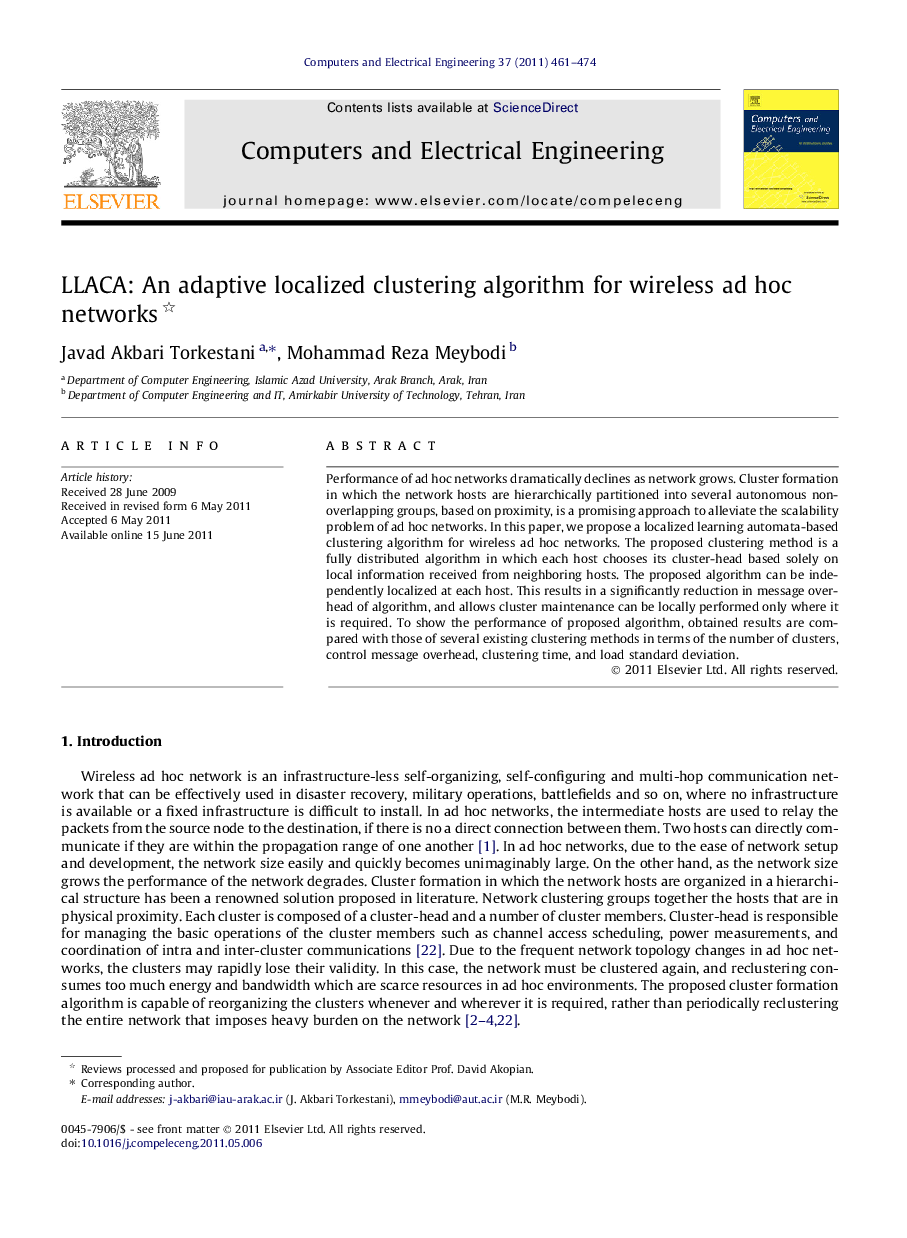| Article ID | Journal | Published Year | Pages | File Type |
|---|---|---|---|---|
| 455200 | Computers & Electrical Engineering | 2011 | 14 Pages |
Performance of ad hoc networks dramatically declines as network grows. Cluster formation in which the network hosts are hierarchically partitioned into several autonomous non-overlapping groups, based on proximity, is a promising approach to alleviate the scalability problem of ad hoc networks. In this paper, we propose a localized learning automata-based clustering algorithm for wireless ad hoc networks. The proposed clustering method is a fully distributed algorithm in which each host chooses its cluster-head based solely on local information received from neighboring hosts. The proposed algorithm can be independently localized at each host. This results in a significantly reduction in message overhead of algorithm, and allows cluster maintenance can be locally performed only where it is required. To show the performance of proposed algorithm, obtained results are compared with those of several existing clustering methods in terms of the number of clusters, control message overhead, clustering time, and load standard deviation.
Graphical abstractThe proposed localized cluster formation algorithm partitions the network into non-overlapping groups by classifying the network nodes as cluster heads (CH) and cluster members (CM). On behalf of the cluster members, cluster heads are responsible for basic operations such as channel allocation, power management, routing, and so on.Figure optionsDownload full-size imageDownload as PowerPoint slideHighlights► Performance of the ad hoc networks dramatically declines as the network grows. ► Clustering is a promising approach to alleviate the scalability problem of the networks. ► This paper proposes a localized cluster formation algorithm. ► The proposed algorithm takes advantage of learning automata theory. ► The proposed method is a fully distributed algorithm that can be independently localized at each host.
